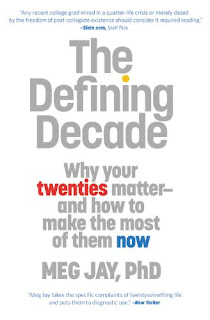Blog Post #4: Research Proposal
Working Title: Building of human capital through fraternities
Topic:
I will be addressing the effects of fraternities on college students and how it creates human capital through strange, and sometimes harmful, ways. Human capital is defined in Cooper’s “In Loco Parentis” as a necessary investment for the future of the economy and this belief is one of the main reasons that colleges are looked at as a necessity in today’s society. I want to explore whether those who join Greek organizations offer the same, or greater, growth as a regular college student in order to the create more influential human capital.
Research Question:
Do fraternities help build human capital within its members?
Theoretical Frame:
Primarily, fraternities personify the freedom that colleges are meant to offer. As summarized in the article, “The Dark Power of Fraternities” by Caitlin Flanagan, the reason fraternities were first introduced was because a group of students realized that they wanted to protest the notion that college was a right of passage meant only to be studious. They wanted to be able to go against parents and professors who limited their freedom and what better way to do it than in a legal and righteous way and form a group within university regulations. Some might even call this a rebellion against social norms. The main ideology of greek life was to encapsulate freedom, and give individual the tools to grow on their own. These individuals discover and experience things that regular college students do not which allows them to become more socially inept and eventually build their social capital as well. In order to fully understand and answer my question, I will compare the differences in students that play an active role in fraternities and those that don’t in order to understand what aspects are directly influenced by the fraternities and not by the college. The main key terms that I will be discussing is “Human Capital” and “Social Capital” which is explained by Kelly Green in her study “Fraternity Involvement and Academic Success: The role of Cultural, Human, and Social Capital”.
I will also talk about whether the growth of human capital associated with fraternities is justifiable based on risks that come with it. All fraternities must take on a lot of responsibility because they are the party administrators in college. They plan, organize, conduct, and if something goes wrong, are accountable for the parties that take place in universities. This helps colleges because they don't have to worry about the risks associated with parties and can shift the blame onto fraternities and its members. So, even though fraternities help create human capital within its members, is it worth the risk that it puts on them as well?
Research and Plan:
To explore the ideas of human and social capital, I will use Pierre Bourdieu’s “The Forms of Capital” and get a better description of what to talk about and tie in with fraternities. A quote that I would like to use is “Each member of the group is thus instituted as a custodian to the limits of the group; because the definition of the criteria is at stake in each new entry, he can modify the group by modifying the limits of legitimate exchange through some form of misalliance” (Bourdieu 52). I feel like this quote can be tied into both the social and human capital a member can gain from joining a fraternity by gaining the power to “modify the limits” which gives every new member to be influential within the organization. They gain social capital but can turn it into human capital as they learn and experience new things to better their understanding of the world.
In order to look at the risks, I will use “The Dark Power of Fraternities” by Flanagan because it explores the idea of how fraternities have become a site for the privatization of risk. Colleges use fraternities as a way of unloading the pressure and risks associated with parties and shift the accountability from the universities to the organizations. This actually helps the fraternities build human capital because of the responsibility and risk and the fraternities members must now learn to deal with. But at the end of the day, if something were to go wrong, the members of the fraternities put their futures in jeopardy. I will look at cases in the past that involve deaths at parties and what happens to the members of the organizations that hosted them. One specific case that happened at Rutgers that I would like to use as an example would be the death of a girl at DKE a few years ago. She was inherently too drunk when she entered the party, and proceeded to pass out in their house. As she was being transported to the hospital, she was pronounced dead the the blame went towards the fraternity because it was where she ended up at the end of the night. Although the fraternity should take blame for allowing her to come in, the university did not need to take the blame for this unfortunate incident because the risk is on the fraternities due to the risk that they bare.
Working Bibliography:
Cooper, Melinda. “ In Loco Parentis : Human Capital, Student Debt, and the Logic of Family Investment.” Family Values: Between Neoliberalism and the New Social Conservatism . Zone Books, 2017. 215-257.
Flanagan, Caitlin. “The Dark Power of Fraternities.” The Atlantic, Atlantic Media Company, 20 Aug. 2015, www.theatlantic.com/magazine/archive/2014/03/the-dark-power-of-fraternities/357580/.
Biddix, J. Patrick, et al. The influence of fraternity and sorority involvement: a critical analysis of research (1996-2013). Wiley Subscription Services, Inc., A Wiley Company, at Jossey-Bass, 2014.
Green, Kelly. “Fraternity Involvement and Academic Success:The Role of Cultural, Human and Social Capital” (2013). Florida State University Libraries
Bourdieu, Pierre. The forms of capital. Www.marxists.org, 2007

Comments
Post a Comment